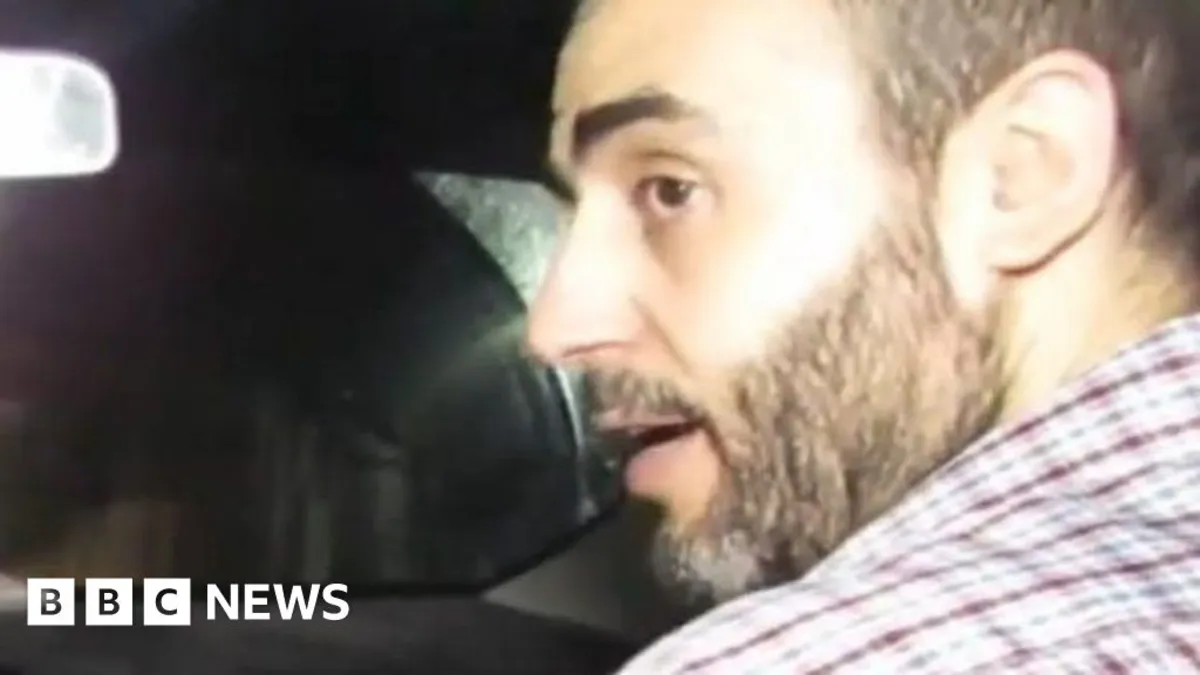
The Israeli military has announced that it has successfully located and identified the body of Mohammed Sinwar, the military leader of the Palestinian armed group Hamas in Gaza. This significant development was reported by the Israel Defense Forces (IDF), which confirmed that Sinwar's body was discovered in a tunnel beneath the European Hospital located in the southern city of Khan Younis. The identification of the body was confirmed through DNA testing, although Hamas has yet to publicly acknowledge his death.
Mohammed Sinwar, aged 49, was reportedly killed during an airstrike on May 13, which the Hamas-run civil defense agency stated resulted in the deaths of 28 people and left dozens injured. The IDF also reported that Sinwar's body was found alongside that of Mohammad Sabaneh, the commander of Hamas's Rafah Brigade. The military indicated that several personal items belonging to both individuals were recovered, along with additional intelligence that is now under further investigation.
In a notable move, the IDF brought a small group of foreign journalists into Gaza to view the tunnel where Sinwar's body was found. The military released video footage showing the entrance to the tunnel, which is accessible through recently dug earth directly in front of the European Hospital. The video reveals a long, narrow underground corridor that leads to multiple rooms. Some of these rooms contained piles of clothes and plastic chairs, with a rifle leaning against the wall. Another video displayed a shrouded body being extracted from the tunnel by a rope.
IDF spokesperson Brigadier General Effie Defrin commented that one of the rooms contained Sinwar's body, asserting that this discovery exemplifies Hamas's "cynical use" of civilian infrastructure, including hospitals, to shield its operations. Israel has consistently accused Hamas of utilizing hospitals as covert locations for weapons and command centers, a claim that Hamas has denied.
The Israeli military's actions have raised significant international concerns. The IDF has conducted sieges and attacks on hospitals in Gaza or ordered their evacuation, placing the health system on the brink of collapse. These operations have endangered the lives of patients and healthcare staff, prompting widespread outcry. In April, after an Israeli strike on al-Ahli hospital, UN Secretary General Antonio Guterres expressed his profound alarm, emphasizing that international humanitarian law mandates the protection of the wounded, sick, and medical facilities.
Despite the IDF's claims, hospital staff in Gaza have repeatedly stated that Hamas does not use their facilities as operational bases. This ongoing conflict continues to challenge the narratives presented by both sides, as full independent verification remains elusive.
The recent escalation in conflict follows Israel's military campaign in Gaza, initiated in response to an unprecedented cross-border attack on October 7, 2023, which resulted in approximately 1,200 deaths and 251 individuals taken hostage. According to the territory's Hamas-run health ministry, over 54,880 individuals have been killed in Gaza since the escalation began. The renewed fighting has emerged after the collapse of a ceasefire and hostage exchange agreement earlier this year. Israel has reiterated its objective to dismantle Hamas and secure the release of hostages, of which 54 remain captive, with 23 believed to still be alive.
Mohammed Sinwar's involvement with Hamas dates back to the late 1980s, shortly after the group's founding. He became a member of the military wing, the Izzedine al-Qassam Brigades, and ascended the ranks to become the commander of the Khan Younis Brigade by 2005. Sinwar was reportedly close to previous Hamas military chief Mohammed Deif and played a role in planning the October 7 attack. His brother, Yahya Sinwar, who is believed to be one of the masterminds behind the same attack, was killed by Israeli forces last October.